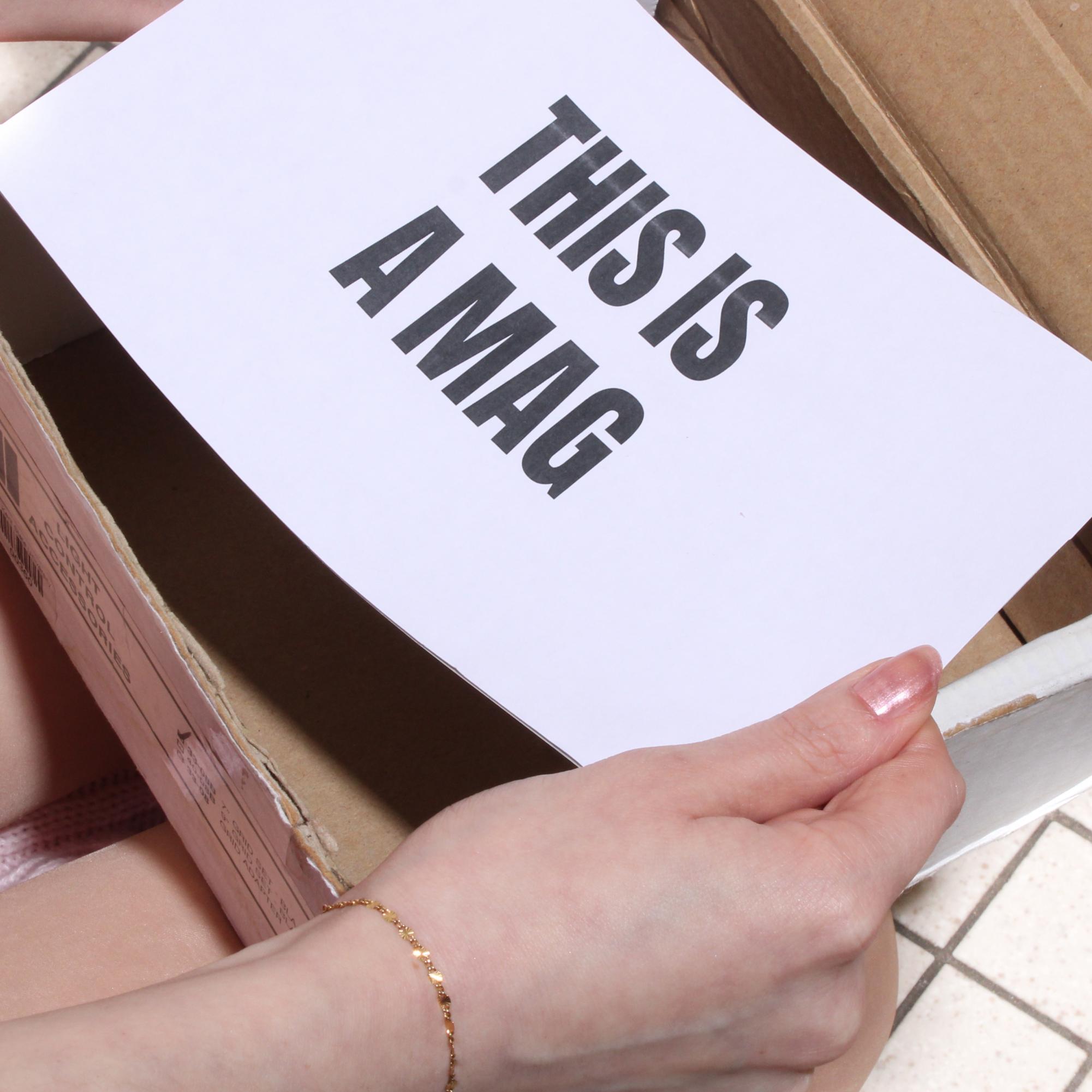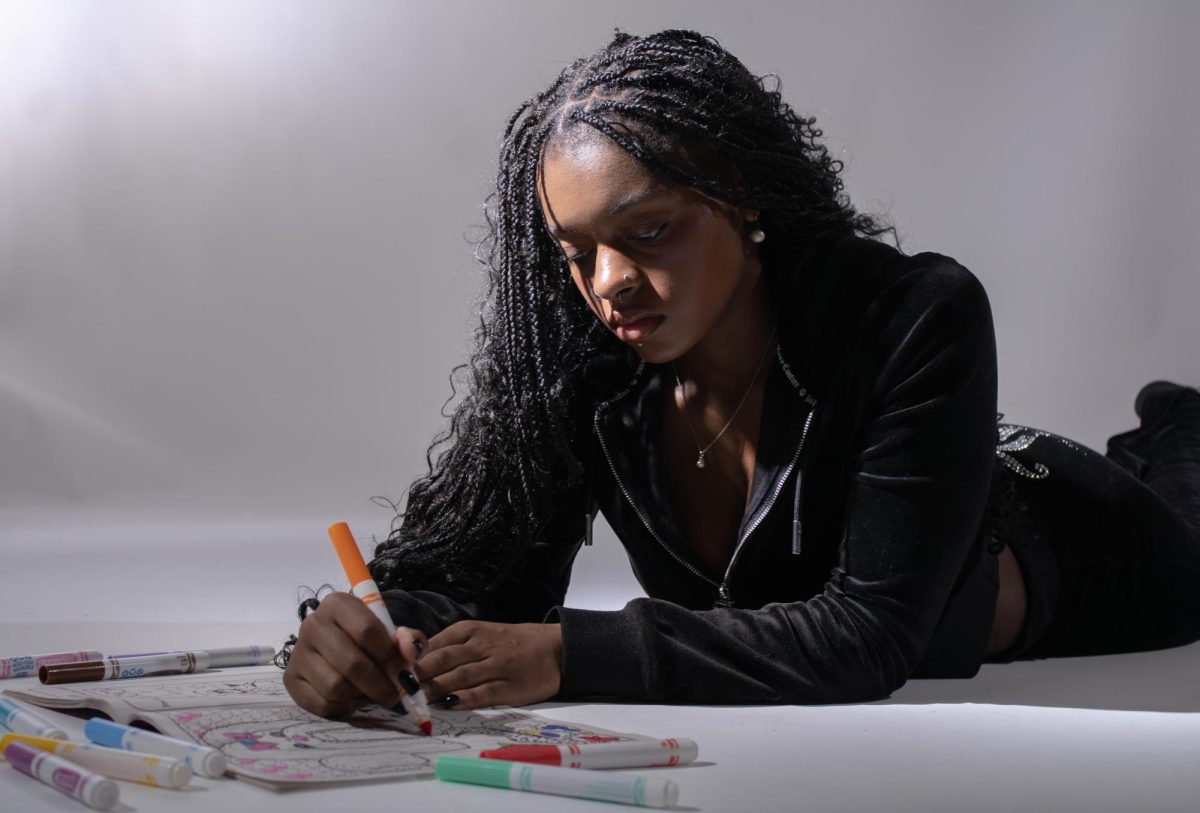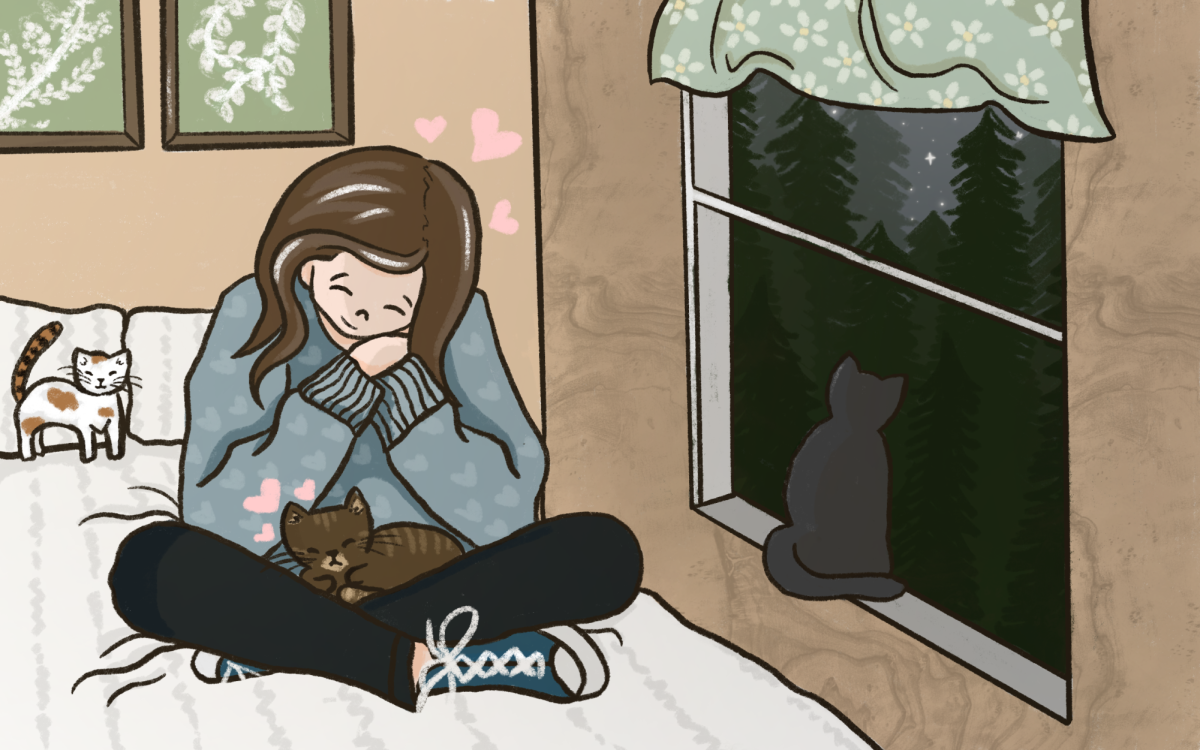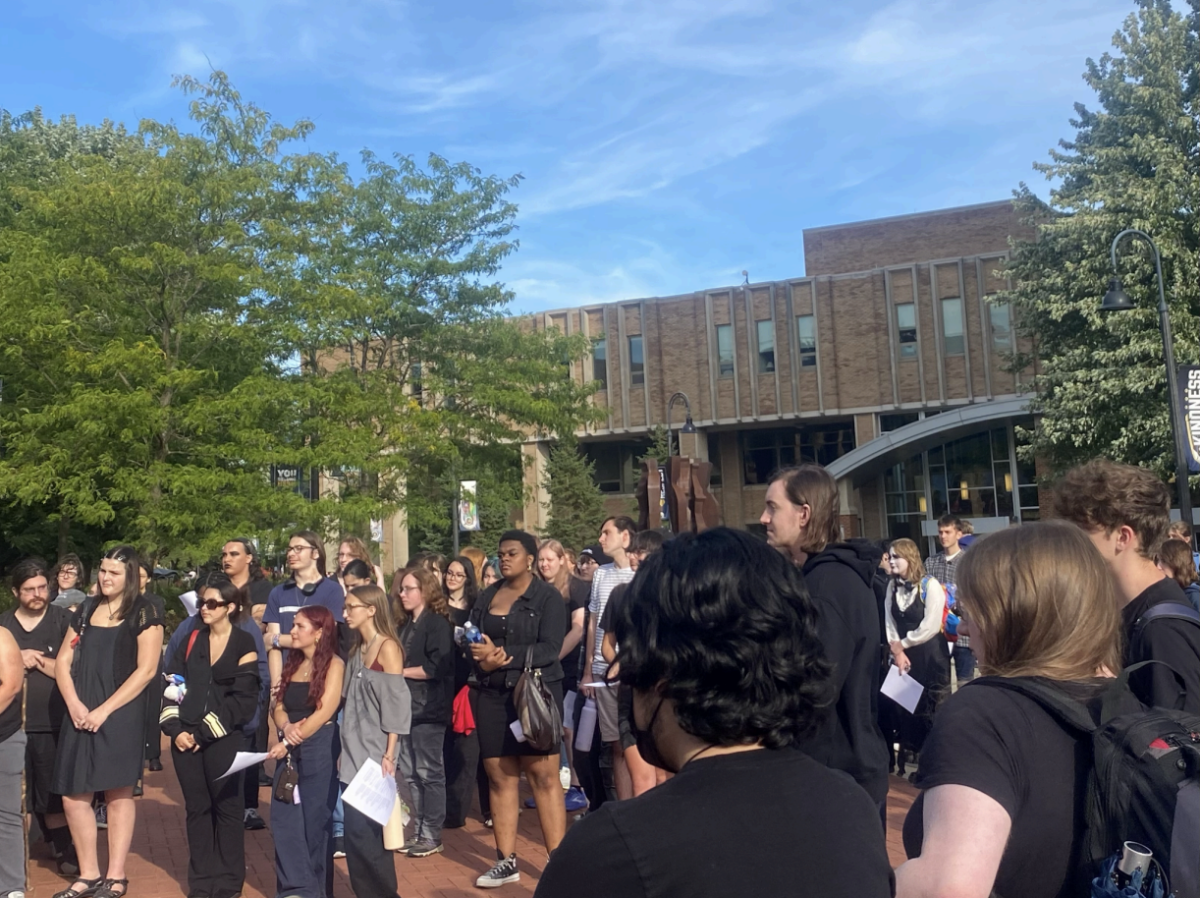
Stylist: Ty’Naya Mcneal
Model: Tessa Baker
Try The Substance: Or at Least Watch the Movie
After last year’s Oscars ceremony forced “Barbie” to go home empty, I was slightly anxious about the fate of feminist films, because what 2025 Best Picture contender could possibly follow Greta Gerwig’s masterpiece? Then, this past winter break, me and my fellow cinephile bestie curled up in her basement to take a chance on the critically beloved “The Substance.” Neither of us are particularly huge fans of gore and horror, so we were apprehensive about what we would gain from this viewing experience. I am pleased to report not only is “The Substance” my movie of the year, but genuinely one of the best movies I’ve ever seen in my life.
The plot follows television star Elisabeth Sparkle, played by Demi Moore, as she gets fired from her own work out show on her 50th birthday. Sparkle then learns of a mysterious procedure called The Substance in which a younger, more beautiful clone of oneself is birthed from the initial user’s spine. By being offered the chance to live every other week as her new self— Sue, played by Margaret Qualley— Sparkle is able to reclaim her Hollywood glory days. When Sue begins to develop her own sense of self and starts to resent having to switch bodies with Sparkle, she takes dangerous risks with The Substance, causing the permanent alteration of both her and Sparkle’s lives.
This film earned Moore her first Golden Globe award and has gone on to snatch six nominations at this year’s Academy Awards, including Best Director and Best Original Screenplay for Coralie Fargeat. This is huge news for not only female filmmakers, but the horror world, which has famously been ignored by the Academy. This movie brilliantly harnesses the violent, gritty tropes of the body horror genre in order to push a message about the constant pressure women face to remain young, beautiful and desirable to men, and it is so powerful to watch it earn the recognition it deserves.
View this post on Instagram
Karisa Butler-Wall, an assistant professor teaching Race, Gender, Class and Dis/Ability In Media Industries this semester, commented on what this movie means for women who struggle with feeling unimportant or ugly due to their age and the genius behind using horror tropes as a means of representing the female experience with appearance.
“I think that women’s bodies are simultaneously the sight of desire and disgust, especially aging women’s bodies,” she said. “I feel like the space that aging femininity takes up in our culture, it’s something that you don’t often see, so I think the fact that this film is engaging with issues of women’s bodies, of gender, of culture in ways that are interesting and critical is refreshing.”
Horror films are such an interesting vessel to display the daily struggles of women because, for most, the very act of existing as a woman can feel like the same entrapment seen in a “Saw” movie. Jordan Peele’s trilogy of recent horror films also harness gore and violence to portray the Black experience in a similar way. There is something very gratifying about using this genre, which historically treats minority characters as disposable, to tell important stories of these marginalized groups.
By turning the traditional tropes of horror on their heads, directors like Peele and Fargeat take back that power that was taken from women and people of color in these types of films and display the real life horrors of oppression that they experience everyday. That horror, of course, being twice as realistic and gut wrenching than that of a murderous children’s toy or a nightmare hopping demon, making for much scarier films.
“I think that historically we’ve thought of horror films as kind of putting women in this damsel in distress figure where usually we have an innocent girl being attacked or whatever,” Butler-Wall said.
“I think ‘The Substance’ is departing from the traditional tropes of horror in certain ways, but is also using the language of horror really evocatively to kind of mirror back to society the issues that it’s facing,” she said. “So yeah, I think the reason women are resonating so much is that it does resonate; the way that women’s bodies are policed, the way that women’s appearances, constantly policed, that is an experience that’s pretty gritty and pretty tough for a lot of women.”
It is a conversation worth having to examine “The Substance” and “Barbie” in their two completely different lenses for portraying the difficulties of womanhood. Despite the drastically different tones, both of these movies actually have a great deal of similar messaging, especially regarding appearances and not feeling like enough. Both Margot Robbie’s Barbie and Qualley’s Sue are not exactly human women, one being a doll and one being a genetically-engineered clone, and both of these characters are supposed to represent the “perfect woman” with the perfect appearance.
View this post on Instagram
By the end of each of their journeys, each of these characters, despite being literally crafted to have the most flawless female form, both have to face the crushing realization that maintaining their perfection is completely futile and, due to the fact that they are still representations of women, were always doomed to fall short of their own idealized self. Although one character gets a front row seat to America Ferrera’s masterclass monologue and one (sorry for the spoiler) suffers a pretty gruesome death, the message remains almost exactly the same: it is pointless to keep reaching for perfection.
The reason “The Substance” is receiving similar waves of praise as “Barbie” is the dedication to and pride in what makes it different; the countering of bittersweet nostalgia with unapologetic carnage. When considering today’s political climate, it is an extremely dangerous time to be a woman, and it is a common belief among Generation Z that the only way to enact change and see real progress from those in power, in terms of protecting minority rights, is to use the subtlety of a sledgehammer.
“Any sort of cultural text in this moment is going to have to speak to the moment that we’re in,” Butler-Wall stated. “This isn’t just happening at the representational level, there are women who are actually suffering, there are people of color who are actually suffering.”
Growing up on media like “The Hunger Games,” it is common to open social media to see younger people openly and boldly expressing their outrage with the flippant and frankly cruel ways the government questions and tries to take their rights to birth control or gender affirming care. “The Substance” stands by this claim that the only way to get the oppressive classes to pay attention to the suffering of those who face marginalization is through force and violence.
“I do think that it’s tricky because we’re in this moment where to make an impact it has to be so over the top, but, at the same time, I think that, yeah, people probably are more receptive to that kind of genre than maybe they would have been 10 years ago,” she said.
View this post on Instagram
“I feel like this is a moment where we’re being invented to really take a second look at some of these systems and some of these ideologies and what have we bought into in terms of the beauty myth, what have we bought into in terms of the tradeoff that women have been given,” Butler-Wall stated. “I think that it’s an important conversation and will probably, hopefully, keep people talking about this stuff.”
Regardless of whether or not “The Substance” takes home a trophy or two on Oscars night, it has certainly made a memorable impact on audiences and critics everywhere; Demi Moore will either win Best Actress, or I am going to be deeply inconsolable.
So, please make sure you watch it, but, full disclosure, maybe try not to eat beforehand.
Support Student Media
Hi! I’m Kayla Friedman, A Magazine’s editor-in-chief. My staff and I are committed to bringing you the most important and entertaining news from the realms of fashion, beauty and culture. We are full-time students and hard-working journalists. While we get support from the student media fee and earned revenue such as advertising, both of those continue to decline. Your generous gift of any amount will help enhance our student experience as we grow into working professionals. Please go here to donate to A Magazine.

















